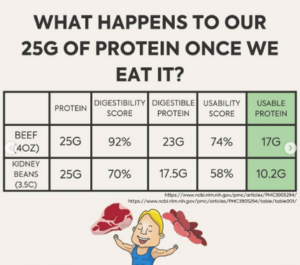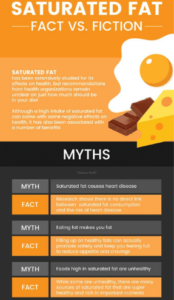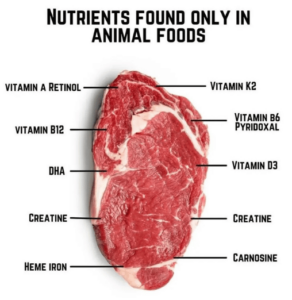Meat consumption has, oddly yet somewhat understandably, become a controversial topic. With growing concerns about climate change, many hotly argue that reducing or eliminating meat is the one and only answer. But is avoiding meat really the best choice for men’s health? And don’t we need healthy people in order to have a healthy planet?
While factory farming is undeniably a serious issue, the anti-meat movement often ignores the superior nutrition of animal products and the bigger environmental threats posed by monocrop agriculture. This article breaks down why meat is essential for optimal male health and why the real conversation should focus on food production and health, not just food choice.
The Bioavailability of Animal Protein
When it comes to protein, not all sources are created equal. Bioavailability refers to how well our bodies absorb and use nutrients from food. Animal protein, such as beef, fish, and eggs, is highly bioavailable, meaning it provides all essential amino acids in the correct ratios for muscle growth and repair.
- Plant-based proteins often lack one or more essential amino acids, requiring careful food combinations.
- Anti-nutrients in plants, such as phytates and oxalates, inhibit nutrient absorption, making plant proteins less efficient in many instances.
- Muscle protein synthesis (MPS) is optimized with high-quality proteins like meat, which contains leucine – a key amino acid for MPS.
For men looking to build and maintain muscle, support recovery, and sustain long-term strength, the data points to animal protein being the best bet. Animal proteins are also complete, meaning they contain all nine essential amino acids in the right proportions. Plant proteins, on the other hand, often require mixing multiple sources and strategic supplementation to even stand a chance at achieving a similar effect.
Studies have also shown that those consuming primarily plant-based proteins may have lower muscle mass retention as they age, leading to increased frailty and risk of injury. This makes high-quality animal proteins an even more essential component of a healthy diet for men.
The Importance of Animal Fats
Animal fats have been demonized for years, yet they play a crucial role in health, particularly for men’s hormonal balance. Testosterone, a vital hormone for strength, energy, and libido, depends on dietary fat.
health, particularly for men’s hormonal balance. Testosterone, a vital hormone for strength, energy, and libido, depends on dietary fat.
- Saturated and monounsaturated fats found in meat and eggs support testosterone production.
- Animal fats are nutrient-dense and naturally contain fat-soluble vitamins (A, D, E, and K).
- Unlike unstable seed oils (canola, soybean, corn oil), animal fats are stable and less prone to oxidation, reducing inflammation.
Cutting meat means cutting these essential fats – potentially harming long-term hormonal health. The cholesterol found in animal fats is a precursor to testosterone, meaning inadequate fat intake could contribute to declining hormone levels, reduced energy, and poor recovery from physical activity.
Muscle Protein Synthesis and Hormonal Health
Building and maintaining muscle isn’t just about looking good – it’s crucial for longevity and metabolic health. Muscle protein synthesis (MPS) declines with age, making dietary protein even more important for men as they get older.
- Higher protein intake supports MPS, preventing muscle loss (sarcopenia).
- Meat provides leucine, a key trigger for muscle growth.
- Testosterone levels and muscle mass are closely linked – low muscle mass often correlates with declining testosterone.
Men who consume adequate high-quality protein and engage in resistance training are more likely to maintain strong metabolic function and avoid common age-related issues such as insulin resistance, fat accumulation, and decreased vitality. Relying solely on incomplete plant proteins can limit muscle-building potential and negatively impact hormone levels.
The Powerhouse Nutrients Found in Meat
Meat provides a unique nutrient profile that plants simply can’t match. Here are some critical nutrients only found in—or best absorbed from—animal products:
- Choline – Essential for brain function, found in eggs and meat.
- Vitamin A (Retinol) – Only fully bioavailable from animal sources, crucial for vision, skin, and immune health.
- B12 – Vital for energy production and brain function, mostly absent in plant foods.
- Carnitine & Carnosine – Play key roles in muscle function and metabolism.
- Creatine – Only found in meat; improves strength, cognition, and energy production.
- Vitamin D3 – The most effective form of vitamin D, necessary for testosterone and immune function.
- DHA & EPA – Essential omega-3s from fatty fish, not efficiently converted from plant sources.
- Heme Iron – Far more absorbable than non-heme iron in plants, preventing anemia.
- Taurine – Vital for cardiovascular and nervous system function, absent in plants.
The Real Issue – Factory Farming and Monocrop Agriculture
The argument against meat is often framed as an environmental issue. While factory farming is undeniably problematic, the solution isn’t to eliminate meat but to change how we produce it.
- Regenerative farming methods restore soil health, sequester carbon, and reduce reliance on synthetic fertilizers.
- Monocrop agriculture (soy, corn, wheat) destroys ecosystems and depletes soil health, contributing to mass deforestation and biodiversity loss.
- Many plant-based diets rely on heavily processed foods, often made with lab-grown proteins, industrial seed oils, and synthetic additives.
Simply replacing meat with ultra-processed, lab-created alternatives does nothing to solve the real problems in food production. In fact, monocrop agriculture contributes significantly to soil degradation, water shortages, and loss of biodiversity, all while being marketed as a sustainable alternative.
The Problem With Poor-Quality Proteins
If you cut meat, what are you eating instead? Many plant-based alternatives are filled with lower-quality protein sources like:
- Soy protein isolates – Highly processed and estrogenic.
- Pea protein – Incomplete amino acid profile, often contaminated with heavy metals.
- Wheat protein (gluten) – Difficult to digest and linked to inflammation.
- Fake meat products – Typically ultra-processed in production and often contain additives, synthetic vitamins, and unhealthy seed oils.
Conclusion: A Smarter Approach to Meat Consumption
The debate around meat needs to shift from “Should we eat meat?” to “How should we produce meat?”. Avoiding meat entirely ignores the real problems in our food system, from factory farming to monocrop agriculture.
Instead of eliminating meat, men should focus on quality:
- Choose grass-fed, pasture-raised, wild-caught, and locally sourced meat whenever possible.
- Support regenerative farming and sustainable meat production.
- Avoid ultra-processed fake meats and low-quality plant proteins.
By shifting the conversation away from fear-mongering and toward real solutions, we can improve both men’s health and the planet. The answer isn’t canceling meat – it’s advocating for better meat.








